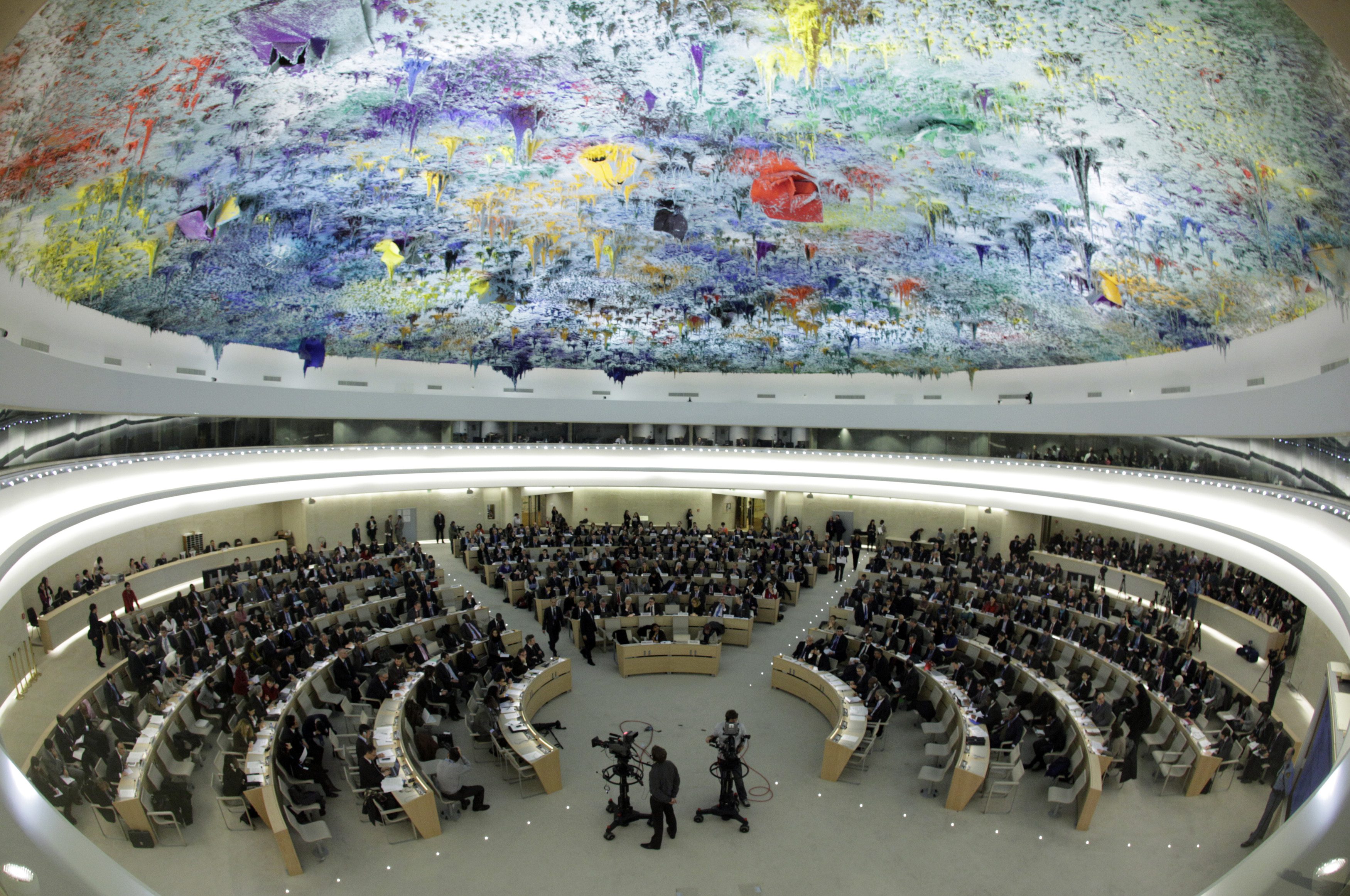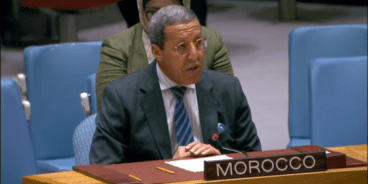
Statement delivered on behalf of the Group of Friends of R2P at the 2019 UN General Assembly Debate on R2P
Statement delivered on behalf of the Group of Friends of the Responsibility to Protect delivered by H.E. Mr. Ambassador Martin Bille Hermann, Permanent Representative of Denmark to the UN at the UN the Formal Debate of the UN General Assembly on R2P
Mr. President,
I have the honor of delivering this statement on behalf of the Group of Friends on the Responsibility to Protect, consisting of 51 Member States and the European Union, and this year co-chaired by Denmark and Qatar.
Today marks the third UN General Assembly formal debate on the Responsibility to Protect. We welcome the UN member’s support for the inclusion of R2P on the formal agenda, over the past two years. It also reflects the strong interest of the members to share ideas and best practices about how we can collectively improve our ability to prevent genocide, war crimes, crimes against humanity and ethnic cleansing. We believe the General Assembly should continue this practice of open and frank debate – a practice repeatedly recommended by the Secretary-General.
The most recent report of the Secretary-General on the Responsibility to Protect takes stock of past practice and includes lessons learned for prevention. The Group welcomes the Secretary-General’s recommendations for implementing and integrating the responsibility to protect as an important part of his broader strategy to prioritize prevention across all pillars of the UN’s work. We appreciate his sustained commitment to the implementation of the Human Rights Up Front initiative, thereby strengthening the UN system’s ability to prevent the most serious human rights violations from happening, including those that possibly lead to the commission of atrocities. The Group commends the Secretary-General and his Special Advisers on Genocide Prevention and the Responsibility to Protect for their leadership in advancing mass atrocity prevention. As this is the first time Ms. Smith joins us in the General Assembly as the Special Adviser on R2P, we especially would like to welcome her.
Since 2005, considerable progress has been achieved by the UN, Member States and other stakeholders, including civil society, in advancing atrocity prevention at the national, regional and international levels. International and domestic actors have successfully created frameworks to identify triggers and risks, develop indicators and early warning mechanisms, and institutionalize prevention mechanisms and partnerships. As a Group of Friends, we have also worked towards conceptually linking R2P, where appropriate, to other related agendas, including Peacekeeping; the Protection of Civilians; Women, Peace and Security; Sustaining Peace; and the Sustainable Development Goals.
Today’s formal debate provides States with an important opportunity to share experiences, best practices, and effective strategies for preventing atrocities. In this context, it is worth highlighting that almost a third of all UN Member States have appointed a national R2P Focal Point and joined the Global Network of R2P Focal Points – the largest governmental network dedicated to preventing mass atrocities.
Currently we are witnessing a divided Security Council unable to take timely and decisive action in multiple atrocity situations. At the same time, the General Assembly and the Human Rights Council can play an important role in responding to atrocity crimes, as demonstrated by the establishment of the International, Impartial and Independent Mechanism for crimes committed in Syria. This success is a direct result of concerted efforts by Member States committed to holding those responsible for atrocities accountable for their actions. We recognize that the primary responsibility to protect lies with Member States, but should peaceful means be inadequate and national authorities manifestly fail to protect their populations the international community should be prepared to take collective action, in a timely and decisive manner, through the Security Council.
We also commend the initiatives of Member States to bring perpetrators of atrocity crimes to justice. Such crimes include war crimes, crimes against humanity, and genocide, as reflected in the Rome Statute of the International Criminal Court. Domestic accountability measures for atrocities are among the most effective ways to prevent recurrence. States have the primary responsibility to investigate and prosecute genocide, torture, and other such crimes committed within their jurisdiction and national accountability efforts should be encouraged and supported, including through the strengthening of judicial cooperation between States. Fact-finding
missions, investigative mechanisms, commissions of inquiry, hybrid and international courts and tribunals provide complementary avenues to enable accountability when and where options under domestic law prove insufficient.
Mr. President,
While accountability is important to prevent recurrence, our ultimate objective is to prevent atrocity crimes from occurring in the first place. Prevention is at the core of each of the three pillars of R2P, and Member States should identify complementary agendas where UN efforts can assist in preventing atrocities. For example, the interaction between the Human Rights Council and the Security Council could be strengthened to better inform the latter about situations that may lead to atrocity crimes. Measures taken by States to prevent atrocity crimes can also contribute to national and regional peace and stability and reinforce national sovereignty.
The 2030 Agenda for Sustainable Development provides a framework for global cooperation to achieve a better and more sustainable future – and can significantly contribute to atrocity prevention efforts. Eradicating poverty, providing development assistance, and supporting capacity and institution building can address grievances and instability that may drive the perpetration of atrocity crimes.
No country or region is immune to the risk factors for atrocity crimes. We are increasingly concerned about the rising levels of incitement to discrimination, hostility and violence in all its forms, as well as hate speech and xenophobia, in many parts of the world. As SecretaryGeneral Antonio Guterres has said, “Hatred is a threat to everyone – and so this is a job for everyone.”
We also strongly support an inclusive approach to preventing atrocity crimes — one that recognizes the critical role women play in early warning, promoting peacebuilding, peacekeeping, capacity building, and more cohesive, inclusive and resilient societies. We should take concrete steps to end all forms of gender-based discrimination and violence and to empower women as agents of change, including by ensuring all women have access to quality education and to meaningfully participate in the decision-making processes affecting their lives. We recognize the important role national and international civil society organizations play in supporting the advancement and implementation of R2P. In particular, we would like to thank the Global Centre for the Responsibility to Protect for its invaluable work as the Secretariat of the Group of Friends, both in New York and Geneva.
Mr. President,
According to the UN Refugee Agency, the number of forcibly displaced people as a result of persecution, conflict and atrocities is at its highest level since the end of the Second World War – 70.8 million in 2018, and this number continues to increase. This figure demonstrates why upholding the responsibility to protect needs to be at the heart of our shared mission to advance peace and security. Today, during this Formal Debate, we look forward to hearing from Member States on best practices to end the current climate of impunity and inaction with regard to the heightening risk of atrocity crimes across the globe. Let this debate be a reminder of the importance to continue this exchange of information and the need to strengthen our individual and collective prevention and accountability response.
The era of indifference is over, but the time of consistent and timely action to prevent and protect has not yet begun. As the SecretaryGeneral noted repeatedly in his report: “More needs to be done.” Let us speed the day.
Thank you.
Related Content

